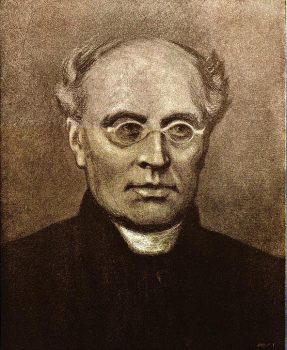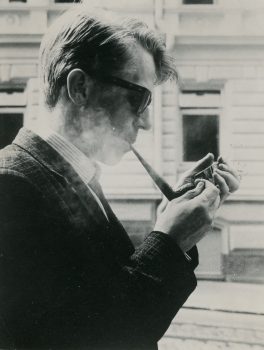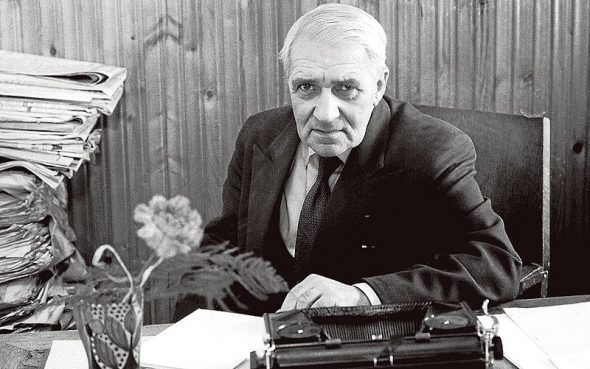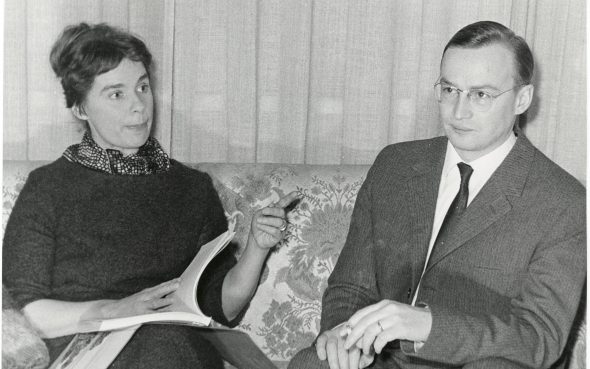Tag: poetry
Landscapes of the mind
Issue 2/1986 | Archives online, Fiction, poetry
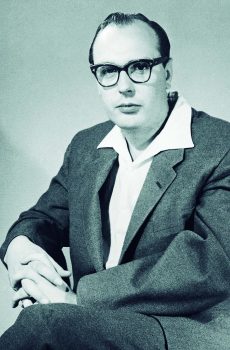
Tuomas Anhava. Photo: Otava
In his book Suomalaisia nykykirjailijoita (‘Contemporary Finnish writers’), Pekka Tarkka describes Tuomas Anhava’s development as a poet as follows: In his first work, Anhava appears as an elegist of death and loneliness; and this classical temperament remains characteristic in his later work. Anhava is a poet of the seasons and the hours of the day, of the ages of man; and his scope is widened by the influence of Japanese and Chinese poetry. As well as his miniature, crystalclear, imagist nature poems, Anhava writes, in his Runoja 1961 (‘Poems 1961’), brilliant didactic poems stressing the power of perception and rebuffing conceptual explanation. The mood in Kuudes kirja (‘The sixth book’, 1966) is of confessionary resignation and intimate subjectivity.
Anhava’s literary inclinations reflect his most important translations, which include William Blake’s The Marriage of Heaven and Hell (1959), selections of Japanese tanka poetry (1960, 1970, 1975), Saint John Perse’s Anabasis (1960), a selection from the works of Ezra Pound, published under the title Personae, and selections from the work of the Finland-Swedish poets Gunnar Björling and Bo Carpelan.
![]()
Song of the black
My days must be black,
to make what I write stand out
on the bleached sheets of life,
my rage must be the colour of death, to make my black love stand out,
my nights must be summer white and snow white,
to make my black grief burn far,
since you're grieving and I love you
for your undying grief.
Let the sun's rolled gold gild dunghills,
let the moon's blue milk leak out till it's empty,
we're not short of those.
The obscure black darkness of the cosmic night
glitters on us enough.
From Runoja (1955)
Poems
Issue 4/1985 | Archives online, Fiction, poetry
Introduction by George C. Schoolfield
Birds of passage
Ye fleet little guests of a foreign domain,
When seek ye the land of your fathers again?
When hid in your valley
The windflowers waken,
And water flows freely
The alders to quicken,
Then soaring and tossing
They wing their way through;
None shows them the crossing
Through measureless blue,
Yet find it they do.
Unerring they find it: the Northland renewed,
Where springtime awaits them with shelter and food,
Where freshet-melt quenches
The thirst of their flying,
And pines’ rocking branches
Of pleasures are sighing,
Where dreaming is fitting
While night is like day,
And love means forgetting
At song and at play
That long was the way. More…
Poems
Issue 3/1985 | Archives online, Fiction, poetry
Introduction by Pertti Lassila
If you come to the land of winds, to the bottom of the sea,
there are few trees, plenty of icy wind
from shore to shore.
You can see far
and see nothing.
Around you screech the newborn plains
still wet from fog
but clear as a dream
at the edge, the sea
beneath, the deep earth
above, the wide expanse
shouts to you and to the plains
about being
it looks at you and asks
When we returned home
and leaned against the long table
we could see the simple grain of the wood
and our weariness turned into knowledge
of why we had had to go away:
to come back to see the uncharted patterns
in the table at home.
From Lakeus (‘The plain’, 1961)
Poems
Issue 2/1985 | Archives online, Fiction, poetry
Introduction by Bo Carpelan
A flower beckons there, a secent beckons there, enticing my eye. A hope glimmers there. I will climb to the rock of the sky, I will sink in the wave: a wave-trough. I am singing tone, and the day smiles in riddles.
*
Like a sluice of the hurtling rivers I race in the sun: to capture my heart; to seize hold of that light in an inkling: sun, iridescence. In day and intoxication I wander. I am in that strength: the white, the white that smiles.
*
To my air you have come: a trembling, a vision! I know neither you nor your name. All is what it was. But you draw near: a daybreak, a soaring circle, your name.
Eroica
Issue 4/1984 | Archives online, Fiction, poetry
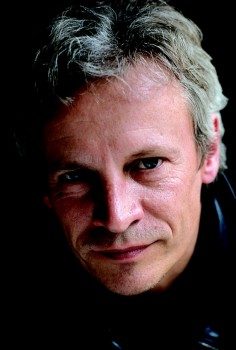
Ilpo Tiihonen. Photo: Irmeli Jung
Poems from From Eroikka (‘Eroica’, 1982). Introduction by Pertti Lassila
Ilpo Tiihonen (born 1950) published his first collection of poetry in 1975. From the beginning, his poems have been couched in the language of the street, and he uses slang liberally. Tiihonen has always been opposed to the miniature idylls of nature that were so characteristic of the 1970s. He aims at the secularisation of poetry, and he uses humour and comedy as a counterweight to high culture. He has evidently been influenced in his technique by Mayakovsky and Yesenin, to whom he often refers in his poems. His preferences in the poetic tradition are apparent in the fresh and liberal new interpretations of poems by Gustav Fröding contained in his collection Eroikka. Unusually for a contemporary Finnish poet, Tiihonen makes extensive use of rhyme. The result is often strongly lyrical poems that could almost be called modern broadsheet ballads, and may also bring Brecht to mind. More…
Bearded Madonna
Issue 4/1984 | Archives online, Fiction, poetry
Poems from Parrakas madonna (‘Bearded Madonna’, 1983). Introduction by Pertti Lassila
The first volume of poems by Eira Stenberg (born 1943) appeared in 1966; since then she has published both poems and children’s stories. In her most recent collection, she examines human relationships within the family, divorce, motherhood and childhood. Stenberg’s voice is clear and concrete. Her treatment of both mother and child is unsentimental, sometimes ironic; perceptively and farsightedly she deals with the importance of childhood in the way it predestines the fate of the individual. No love or hate burns/ like that we receive as a gift from childhood, Stenberg writes in one of her poems. The home – protective, restrictive and punishing – is often the scene of her poems. The man, the father, is the butt of considerable irony and criticism, but Stenberg also destroys the myth of the madonna-like mother and the idyll of the home. More…
An intimation of Paradise
Issue 4/1984 | Archives online, Fiction, poetry
Poems from Paratiisiaavistus (‘An intimation of Paradise’, 1983). Introduction by Pertti Lassila
Satu Salminiitty (born 1959) has published only one collection of poetry since her first appeared in 1981, but with these two volumes she has achieved considerable success. She writes with a fine rhetoric using language and rhythm that are far removed from those of spoken Finnish. Religious pathos has a prominent place in her work, and her poems often derive from praise, prayer or even magic incantations; Salminiitty is a creator of vision who trusts to her metaphysical intuition, a quality not generally discernible among today’s Finnish poets. Equally rare is her lively faith in the goodness and beauty of people and of the world. A conscious rejoinder to materialism, pessimism and fear of the future can be read in her poems. More…
Narcissus in winter
Issue 4/1984 | Archives online, Fiction, Prose
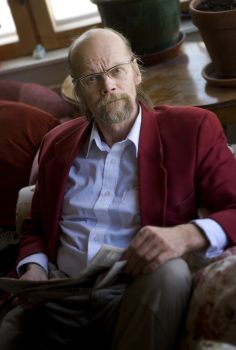
Risto Ahti. Kuva: Harri Hinkka
Poems from Narkissos talvella (‘Narcissus in winter’, 1982). Introduction by Pertti Lassila
Risto Ahti (born 1943) published his first work in 1975. His poetic expression finds form remarkably often in prose poems, and Narkissos talvella is made up exclusively of these. His poems transmute language into a mystical, surreal world, sometimes enigmatic and subjective in the extreme, and at its best strangely suggestive. It is as if Ahti’s world were in a state of constant change, subjected to a relentless process of demolition and rebuilding. The experience of the individual, generally his encounter with truth, is central to many of Ahti’s poems; the inner reality of a person manifests itself as more essential than the outward appearance. Ahti’s poems exhibit a fruitful contradiction: on the one hand, the accuracy with which he uses words and, on the other, the continual shape-changing and lack of definite boundaries of the world they describe. More…
Poems
Issue 2/1984 | Archives online, Fiction, poetry
Interview by Philip Binham
Birdmount
I hear a happy tale, it makes me sad:
no-one will remember me for long.
I will send a letter with nothing inside, the emptiness will reek
as the pines do, of fruit-peel and of smoke,
a scent only.
Here I have stayed a week, seven riverside days.
The river treads the mill, ah, treads the mill,
the river’s wide, this is a placid reach, the sky is near:
smoke, like the shadow of a birdflock passing, nothing else.
And now it is September:
there are more pine trees here, and more darkness too. More…
The power game
Issue 2/1984 | Archives online, Fiction, Prose
Puhua, vastata, opettaa (‘Speak, answer, teach’, 1972) could be called a collection of aphorisms or poems; the pieces resemble prose in having a connected plot, but they certainly are not narrative prose. Ikuisen rauhan aika (‘A time of eternal peace’, 1981) continues this approach. The title alludes ironically to Kant’s Zum Ewigen Frieden, mentioned in the text; ‘eternal peace’ is funereal for Haavikko.
In his ‘aphorisms’ Haavikko is discovering new methods of discourse for his abiding preoccupation: the power game. All organizations, he thinks, observe the rules of this sport – states, armies, businesses, churches. Any powerful institution wages war in its own way, applying the ruthless military code to autonomous survival, control, aggrandizement, and still more power. No morality – the question is: who wins? ‘I often entertain myself by translating historical events into the jargon of business management, or business promotion into war.’
‘What is a goal for the organization is a crime for the individual.’ Is Haavikko an abysmal pessimist, a cynic? He would himself consider that cynicism is something else: a would-be credulous idealism, plucking out its own eyes, promoting evil through ignorance. As for reality, ‘the world – the world’s a chair that’s pulled from under you. No floor’, says Mr Östanskog in the eponymous play. Reading out the rules of a mindless and cruel sport, without frills, softening qualifications, or groundless hopes, Haavikko is in the tradition of those moralists of the Middle Ages, who wrote tracts denouncing the perversity and madness of ‘the world’ – which is ‘full of work-of-art-resembling works of art, in various colours, book-resembling texts, people-resembling people’.
Kai Laitinen
Speak, answer, teach
When people begin to desire equal rights, fair shares, the right to decide for themselves, to choose
one cannot tell them: You are asking for goods that cannot be made.
One cannot say that when they are manufactured they vanish, and when they are increased they decrease all the time. More…
The starving, too
Issue 2/1983 | Archives online, Fiction, Prose
Poems from Det som alltid är (‘What always is’). Introduction by Sven Willner
The starving, too
The starving, too, can
love, but their love is
simplified to hunger, its
principle. With the help of
another’s love the sated love
themselves, which they
otherwise would hate. And
stronger is perhaps the love
that saves,
but deeper is the one that
seals. People, of
whom all that is left is
a heart and its
two arms, give one another
their hunger. More…

